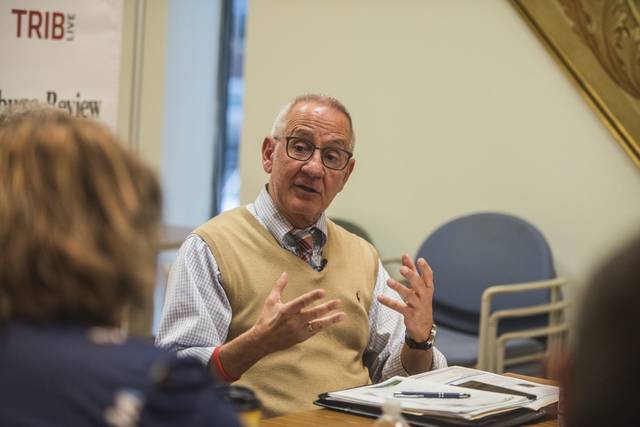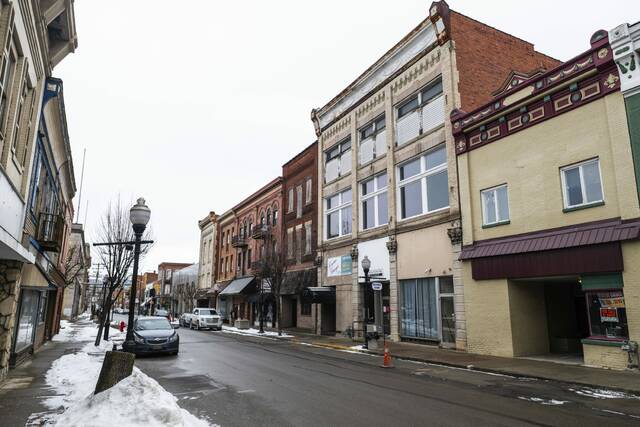A lack of halfway houses in Westmoreland County has officials calling for community partners to help fill that gap.
During a meeting with the Tribune-Review editorial board Thursday, Westmoreland County Detective Tony Marcocci and Tim Phillips, director of the Westmoreland County Drug Overdose Task Force, said that type of living environment locally can help people just getting out of treatment find stability.
“There’s no place locally that our people can get housing once they come out of treatment,” Phillips said. “We need to have some secure, healthy places that they can stay and live and have some sense of security, support and unity amongst each other to be successful.”
Marcocci and Phillips touched on several topics during a session with the board, ranging from the emergence of crystal methamphetamine to medical and recreational marijuana.
Both men agreed that recovery housing is a needed addition in Westmoreland County. They hope to meet with potential partners to further discuss possible funding to get something off the ground.
“Most of our people have to go to neighboring counties and … there’s a waiting list,” Phillips said.
There are a handful of state-licensed halfway houses in the area, in Allegheny, Indiana, Fayette and Washington counties.
“Tim and I both like the idea of a halfway house, three-quarter way house, where they can ease back into society in the proper way, learning the dos and don’ts,” Marcocci said. “The money, the lifestyle is just as addicting as the disease of addiction itself. They get wrapped up in that environment so that has to be broken, too.”
In 2016, a provider agreed to open a halfway house in Mt. Pleasant under a request for proposals issued by the Westmoreland Drug and Alcohol Commission. But that provider later pulled out of the project, said Elizabeth Comer, commission director of clinical services and case management.
“We’re encouraging providers to bring halfway houses into the county” but the funding for them seems to be an issue, she said. Private health insurance does not cover those types of facilities, which means facilities are paid only through Medicaid or reimbursement from entities like the commission.
The state is working on a program that would license some recovery houses that are operating in Pennsylvania, said Jennifer Smith, secretary of the Department of Drug and Alcohol Programs. Officials hope to have that program running by December with licenses issued in the first half of 2020.
There are some recovery houses that are unsafe and operated by people with “less than stellar motives” so the program will be a way to monitor houses that get state-related referrals or funding, Smith said.
“In the state, we don’t know exactly how many recovery houses exist, we estimate in the thousands,” she said.
Recovery and halfway houses can provide a drug- and alcohol-free place to live as well as a built-in support system, Smith said. A few more of those types of houses are set to open in Westmoreland County, including in New Kensington and Monessen, Comer said.
The Oxford House operates a few recovery houses in Greensburg, according to its website.











